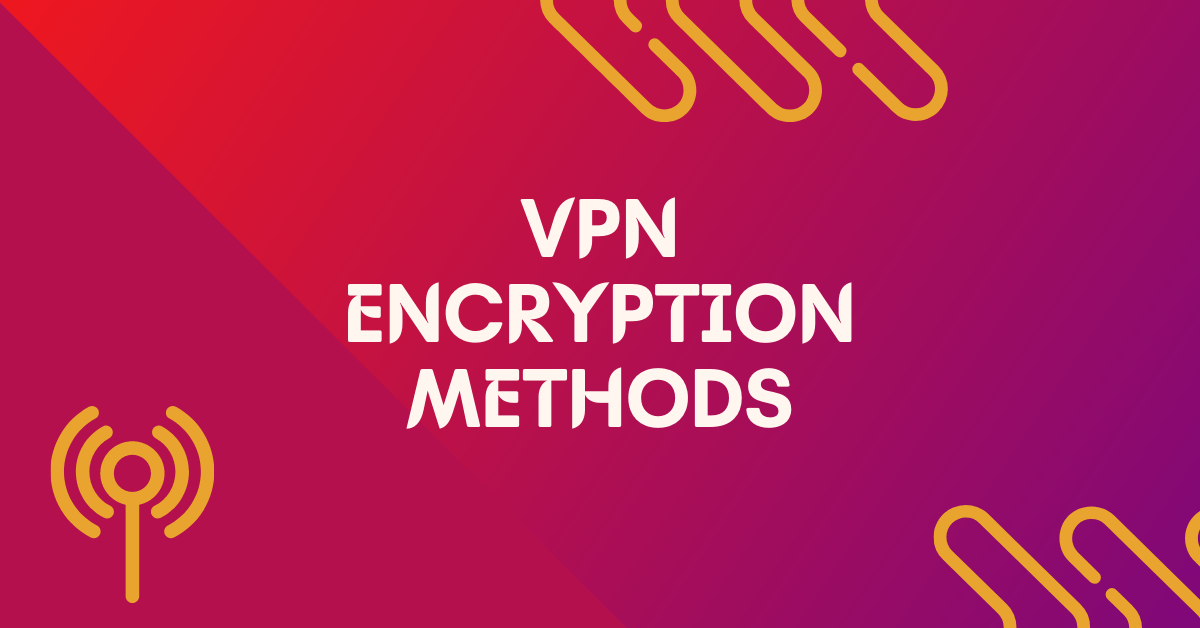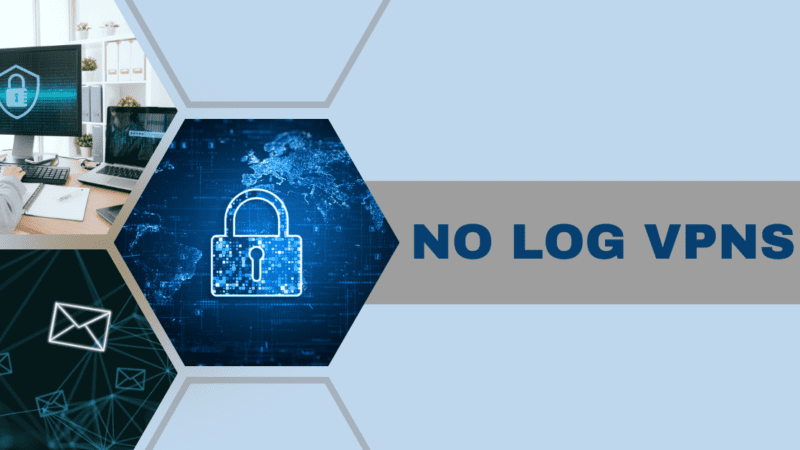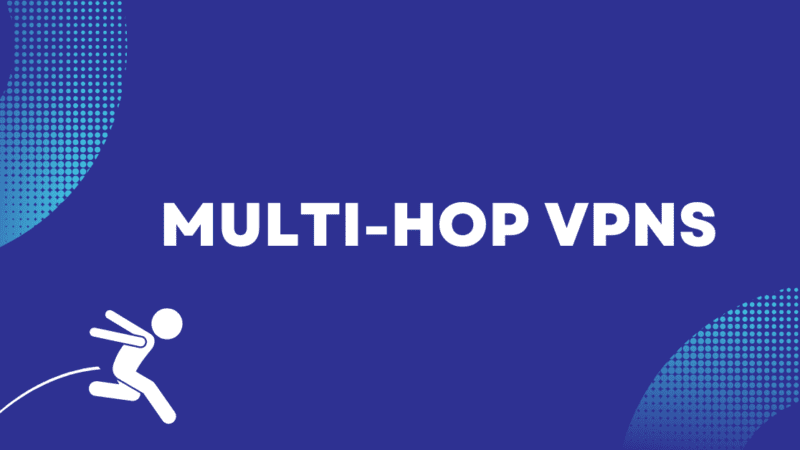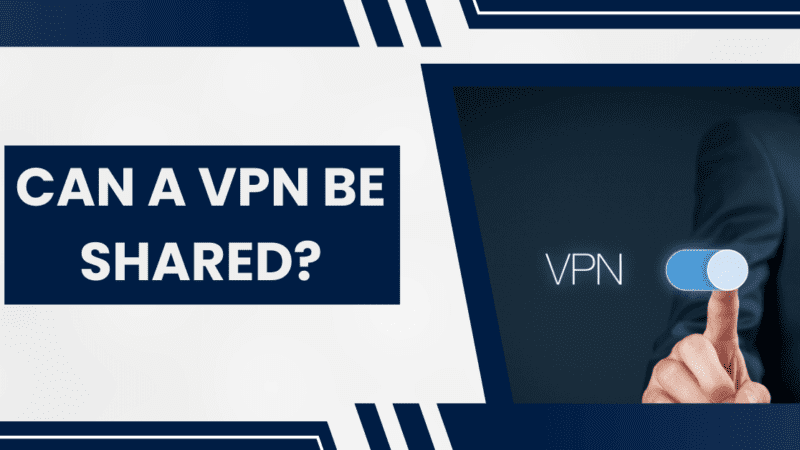5 Most Common Types of VPN Encryption Methods You Should Know

In today’s world, where almost everything is connected to the internet, ensuring the privacy and security of our online activities has become more important than ever before. One of the most effective ways to achieve this is by using a Virtual Private Network (VPN). A VPN encrypts our internet traffic, making it much harder for anyone to intercept and read our sensitive data. However, not all VPNs are created equal, and the type of encryption used can significantly impact the level of security and performance.
In this article, we will discuss the different types of VPN encryption methods, including symmetric and asymmetric key encryption, hashing algorithms, and TLS encryption. We will also compare these encryption methods in terms of security, performance, and complexity, to help you choose the right VPN encryption method for your needs.
What Is a VPN Encryption?
VPNs are designed to create a secure connection between two devices over the internet, allowing data to be transmitted securely and privately. Encryption plays a crucial role in this process by converting the data into an unintelligible form that can only be deciphered by the intended recipient.
The encryption process involves the use of complex algorithms called ciphers, which are designed to scramble the data so that it cannot be intercepted by unauthorized users. The encryption key is a vital component of the process, serving as the basis for the encryption algorithm. It is the key that unlocks the encryption, allowing the recipient to decode the scrambled data.
Types of VPN Encryption Methods
Encryption is the process of encoding data so that only authorized parties can access and understand it. This involves substituting letters and numbers, with modern encryption methods utilizing sophisticated algorithms called ciphers to facilitate encryption and decryption. Ciphers are a set of well-defined steps that depend on a key, which must be known to decrypt the data.
When discussing encryption, a combination of cipher and key-length denotes the number of “bits” in a given key. A short key length can be vulnerable to brute-force attacks, while a longer key length improves security. The current industry standard for key length is 256 bits, which is virtually impossible to brute-force. You can find different types of VPN Encryption Methods:
1. Symmetric key encryption
Symmetric key encryption is a type of encryption where the same key is used for both encryption and decryption of data. This means that the sender and receiver of the data must have access to the same key to encrypt and decrypt the data.
One of the main advantages of using symmetric key encryption is its speed. Since the same key is used for both encryption and decryption, the process is relatively fast compared to other encryption methods. This makes it a popular choice for VPN protocols that require high-speed data transfer, such as PPTP and L2TP.
However, a major disadvantage of symmetric key encryption is its lack of key distribution. Because both the sender and receiver must have access to the same key, the key must be securely shared before the encrypted communication can begin. This can be a challenge when communicating with a large number of users or when communicating with users across different networks.
2. Asymmetric key encryption
Asymmetric encryption, also known as Public key encryption, is a type of encryption that uses a pair of keys for encryption and decryption. One key is public and can be shared with anyone, while the other is private and must be kept secret.
When data is encrypted using a public key, only the corresponding private key can decrypt it. This makes public key encryption ideal for secure communication over the internet, as it allows for secure transmission of sensitive data without the need for a shared secret key.
While public key encryption is highly secure, it is also slower and more resource-intensive than symmetric key encryption. Therefore, it is often used in combination with symmetric key encryption to provide the benefits of both encryption methods.
3. Hashing Algorithms
Hashing algorithms are a type of encryption algorithm that are used to produce a unique digital fingerprint of a given input data. Unlike other encryption methods that produce ciphertext that can be decrypted back into the original plaintext, hashing algorithms produce a fixed-size output known as a hash.
Hashing algorithms are one-way functions, which means that it is impossible to reverse engineer the original input data from the hash output. They are commonly used for data integrity checks, digital signatures, and password storage.
By generating a unique hash of the input data, hashing algorithms provide a way to verify the authenticity and integrity of the data without the need to store or transmit the original data itself. This makes them a valuable tool for secure data storage and transmission.
4. TLS Encryption
Transport Layer Security (TLS) is a type of encryption that is used to secure internet communication. It is commonly used in VPN protocols such as OpenVPN, which is considered one of the most secure VPN protocols available.
One of the main advantages of TLS encryption is its high level of security. TLS uses a combination of symmetric and asymmetric key encryption to provide strong protection against cyber threats. It also includes features such as certificate validation and perfect forward secrecy, which further enhance its security. It is commonly used for securing internet transactions, including web browsing, email, and instant messaging.
However, a major disadvantage of TLS encryption is its potential impact on performance. Since TLS encryption is a complex encryption method that uses a combination of encryption protocols, it can add some latency to internet communication. This can be particularly noticeable in situations where high-speed data transfer is required.
5 Most Popular VPN Ciphers
A cipher is an encryption algorithm used to scramble plaintext into ciphertext, or to decrypt ciphertext back into plaintext. The strength and security of a cipher is determined by two main factors: the key length and the strength of the algorithm used.
Key length refers to the number of bits used in the key that is used to encrypt and decrypt data. The longer the key length, the stronger the cipher. However, longer key lengths also require more processing power, which can slow down the encryption and decryption process.
To strike a balance between security and performance, VPN providers carefully select ciphers that offer both strong security and efficient performance. Some of the most commonly used ciphers in the VPN industry are Advanced Encryption Standard (AES), Blowfish, and Camellia. These ciphers are widely considered to be among the most secure in the industry.
1. Advanced Encryption Standard (AES)
Advanced Encryption Standard (AES) is considered much stronger than the older DES and triple DES encryption standards, despite being harder to implement.
AES is a block cipher, which means that it encrypts data in blocks of a fixed size. The size of the key can be 128, 192, or 256 bits, with longer key sizes providing greater security. The input data is divided into blocks of 128 bits each, and the output is also a block of 128 bits of encrypted cipher text.
2. Blowfish
Blowfish is a block cipher encryption technique. It was created as an alternative to the Data Encryption Standard (DES) encryption technique. Blowfish is faster than DES and offers a high encryption rate with no effective cryptanalysis technique found to date.
Blowfish is considered a fast block cipher, except when changing keys. Each new key requires a pre-processing equivalent to 4KB of text. This can make key management a bit challenging in situations where keys need to be frequently changed. It uses a 64-bit block size, which makes it vulnerable to certain attacks like birthday attacks. However, it is still considered to be a secure encryption technique when used with a strong key.
3. Camellia
Camellia is a symmetric block cipher, meaning that it uses the same secret key for both encryption and decryption. The strength of the cipher is determined by the key length, which can be either 128, 192, or 256 bits. The cipher is designed to be efficient for both software and hardware implementations, making it suitable for use in a wide range of devices, from low-cost smart cards to high-speed network protocols.
4. Triple DES (3DES)
It is a symmetric-key block cipher that applies the Data Encryption Standard (DES) cipher algorithm three times to each data block. 3DES is considered to be secure, but it is slower than newer ciphers and is being phased out in favor of AES.
5. ChaCha20
It is a stream cipher that uses a 256-bit key and is designed to be efficient in software and hardware. ChaCha20 is a relatively new cipher and is considered to be very secure. The Chacha20 cipher generates the same output for encryption and decryption when the same initial key, counter, and nonce are used. The strength of the cipher lies in the fact that it generates a unique keystream for each input, which makes it difficult to crack.
When selecting a VPN provider, it is important to consider the types of ciphers they use for encryption and decryption. By choosing a provider that uses strong and secure ciphers, you can ensure that your data remains protected and confidential.
Factors to consider when choosing a VPN encryption method
When choosing a VPN encryption method, there are several factors to consider. These include:
- Security: The most critical factor to consider when choosing a VPN encryption method is security. You need to ensure that the encryption method you choose is strong enough to protect your sensitive data from cyber threats such as hackers, malware, and phishing attacks. Look for VPN providers that use encryption protocols such as AES-256, which is considered the gold standard for VPN encryption.
- Performance: Another crucial factor to consider is performance. While strong encryption can provide excellent security, it can also slow down your internet connection. This is because the encryption and decryption process can add some latency to your connection. Consider the tradeoff between security and performance and choose an encryption method that strikes a balance between the two.
- Compatibility: The VPN encryption method you choose should be compatible with your device and operating system. Some VPN protocols may not be supported by certain devices or operating systems, so make sure to check if the VPN provider supports the encryption method you want to use.
- Ease of use: The VPN encryption method you choose should be easy to use and configure. Some VPN protocols may require advanced technical skills to set up and use, which may not be suitable for beginners or non-technical users.
- Cost: The cost of using a VPN service can vary depending on the encryption method used. Stronger encryption typically requires more resources and may cost more. Consider your budget when choosing a VPN encryption method, but keep in mind that the cheapest option may not always be the best in terms of security and performance.
| Encryption Method | Security | Performance | Compatibility | Ease of Use | Cost |
|---|---|---|---|---|---|
| Symmetric Key Encryption | High | Fast | Widely supported | Easy | Low |
| Asymmetric Key Encryption | High | Slow | Widely supported | Moderate | Medium |
| Hashing Algorithms | Low to Medium | Fast | Widely supported | Easy | Low |
| TLS Encryption | High | Fast | Widely supported | Easy | High |
Conclusion
In conclusion, choosing the right VPN encryption method for your needs is essential for securing your online activities. While symmetric key encryption is faster, it lacks key distribution. Asymmetric encryption is highly secure, but slower and more resource-intensive. Hashing algorithms are commonly used for data integrity checks, digital signatures, and password storage. TLS encryption provides strong protection against cyber threats, but may impact internet communication performance. Consider the level of security and performance required to choose the best VPN encryption method for your needs.






